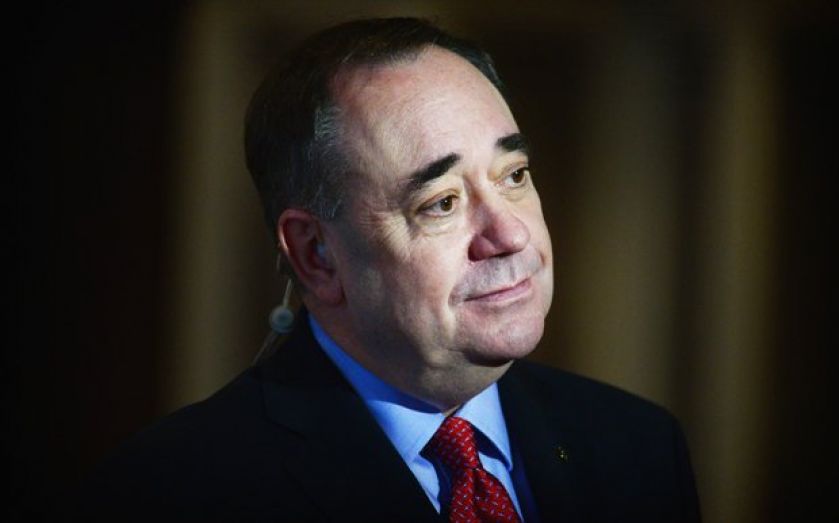Scots split plan hit by black hole

Sinking oil revenues cause deficit to balloon north of the border
THE SCOTTISH National Party’s bid for independence was dealt a blow yesterday as fresh figures revealed that Scotland’s deficit has jumped above the level for the UK as a whole, largely due to sinking oil revenues from the North Sea.
The data coincided with comments made by billionaire investor George Soros, who warned that a new Scottish currency would be “potentially dangerous” due to its weakness – while also ruling out an independent Scotland keeping the pound.
“I don’t think that Scotland becoming independent and yet remaining part of sterling is actually possible,” Soros told an audience in London.
First Minister Alex Salmond has previously talked up Scotland’s fiscal health as a key reason to vote yes in the referendum on whether or not it should split from the rest of the UK, set for 18 September. Yet estimates in the latest Government Expenditure and Revenue Scotland report show the Scottish deficit shooting up to over £12bn in 2012-13, the equivalent of 8.3 per cent of the country’s GDP. For the UK as a whole, the deficit eased to 7.3 per cent of GDP.
Revenue from the North Sea plummeted 41.5 per cent in last complete fiscal year, severely knocking the numbers attributed to Scotland.
The SNP argued yesterday that the drop was caused at least in part by one-off factors such as reduced production while capital investments take place. However, analysis by Capital Economics said that the Scottish government’s projections “still look too optimistic.”
“The trouble is that Scotland’s economy has mostly been lagging the UK’s,” Capital’s Richard Holt said. “London and the south east power the UK economy forward. North Sea activity used to do that for Scotland. Maybe it will again – but few in
the industry think so, temporary fluctuations aside.”
Former chancellor Alistair Darling pounced on the figures. “This is a landmark moment in the debate,” he said. “If Scotland was independent today we would have no option but to cut spending on services like schools and hospitals or put up taxes – or probably both.”